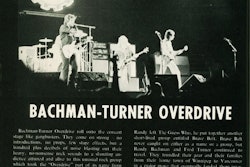HOS Weary
Perhaps it’s time to compromise instead of adopting nonsensical hours rule
With the almost certain behind-closed-doors wrangling over a revised hours-of-service rule dragging on into the fall, the apprehension builds for truckers across the country. It has the air of a child waiting for the alpha parent to come home and dole out punishment for daily misdeeds.
Randy Grider is editor of Truckers News. He is the son of a career trucker and holds a CDL. Write him at [email protected].
The basic problem is truckers have done little to deserve the controversial judgment they are about to receive. Their biggest crime is trying to make a living in a system that has been broken for decades and has now become increasingly unfair and overly complex. And adding to the frustration is that just when you almost have the rules figured out, they change.
Under the current rule, good drivers with reputable carriers and business-minded owner-operators have managed to survive and even thrive with the return of freight. But there are no promises with the Federal Motor Carrier Safety Administration’s latest proposed rule. We explored the ins and outs of the rule in this issue (see Hours of Reckoning on pg. 22).
After poring over the proposed rule, examining real-work analyses and listening to many drivers and fleet executives, we ask this question of our government leaders: Why bother? The rule does nothing to solve the problem of uncompensated time for drivers, which is a catalyst for drivers to push themselves to log every mile they can get. That’s how the majority of drivers get paid.
It does nothing to ease congestion, which hampers overall productivity and impacts drivers’ bottom lines when stuck in traffic. And many experts predict the need for more trucks on the highways.
It does nothing to penalize unsafe drivers in four-wheelers who do stupid things around commercial vehicles. Aren’t they the ones who cause the majority of truck-related crashes?
After poring over the proposed rule, examining real-work analyses and listening to many drivers and fleet executives, we ask this question of our government leaders: Why bother?
It does nothing to help drivers with parking shortages in some areas of the country. In fact, it likely will create more problems for drivers looking for safe places to park during mandated rest breaks.
It does nothing to encourage drivers to take breaks when their bodies tell them they are tired. Nope, apparently everyone will be refreshed with the mandated 30-minute breaks in the middle of the 14-hour on-duty window and 10-hour off-duty requirement, no matter the circumstances.
It does nothing to ensure drivers that the midnight-to-6 a.m. weekly reset won’t make them shut down just a few hours from home. It fact, it will likely force many hard-working drivers to cool their heels somewhere besides their own bed for 40-plus hours. That’s the total of most people’s entire work week.
The selling point for changing the rule is supposed to be safety. So how is a rule that doesn’t end the motivation for running harder, contributes to congestion, ignores the culprits in the majority of accidents, increases parking problems, dismisses personal signs of fatigue and doesn’t give drivers the flexibility to return home to loved ones when feasible promote greater safety?
It doesn’t.
It’s a shell game, and FMSCA is trying to convince everyone they will win. Truth is FMCSA has put the pea in its pocket and is hoping it can keep moving the shells until someone grows tired of the game and gives up. But ultimately no one wins and the game continues.
Until the system is totally overhauled (and I hope you aren’t holding your breath), the best solution is to keep the current rule and give the so-called safety groups, whose legal challenges are sure to continue, a caveat — electronic onboard recorders. It’s part of a compromise John Hill, former FMCSA administrator, has suggested. He recommends Congress get involved to end the legal merry-go-round with a moratorium on hours changes.
No, it’s not a permanent fix, but it at least makes more sense than continuing the road the trucking industry has been on for the past decade. After all, a circle will only lead us back to where we’ve already been.









